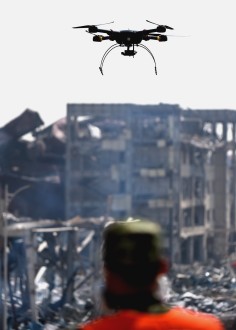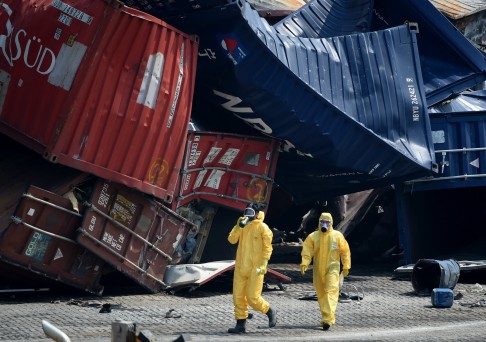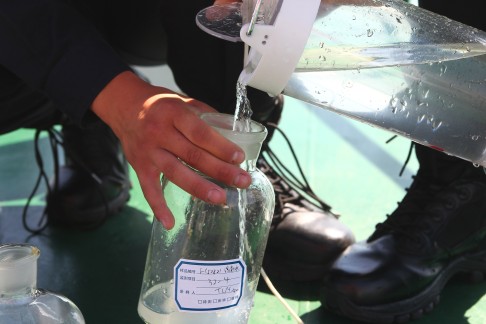
Tianjin expats fear contamination from chemical blasts over one week on, and caged animals aren't calming nerves
Some multinationals also keeping operations closed as sporadic fires continue to break out at blast site

American expat Drew Chovanec is staying put at his home about 5km from the site of the chemical explosions in Tianjin , but he's still worried.
Just like his Chinese neighbours, he's unsure how to gauge what risks remain as crews continue their clean-up work.
"I don't know what I need to protect myself from," said Chovanec, 25. "We just would like some more information."

However, as sporadic fires continue to wreak havoc at the blast site, carmaker Toyota said on Saturday it will keep its operations near the Chinese port shut at least through Wednesday due to safety concerns.
"We will only restart operations when we have been able to confirm the safety of our facilities and their surroundings, and when our employees feel that they can once again go to work in a safe environment," the company said in an email.
Meanwhile, Anil Gaikwad, a 48-year-old Indian expat, lived with his wife and two children in a flat about 6km from the blast site, but they have moved about 30km away.
His building suffered minor damage from the blast shockwaves, and he's waiting for confirmation about when it might be safe to return. He's been using masks with carbon filters and drinking bottled water.
"I'm worried about the air pollution. I'm worried about the reaction that happens with the rain," Gaikwad said, referring to the toxic hydrogen cyanide gas released when sodium cyanide comes into contact with water. "I'm just waiting for the air pollution [to subside] so I can bring back my kids."
Although he wants more information from officials, Gaikwad praised the government's efforts in handling what he calls an extreme situation, as well as its patrolling of websites and social media discussions regarding the blasts. "Many people have come up with rumours [that are] only increasing the anxiety of the people living here," he said.
Some displaced expats have moved about 40km away to other parts of Tianjin or Beijing, after some companies shut operations in the industrial Binhai New Area. More than 170 companies and 17,000 homes have been affected.
Sugan Muthiah, a 34-year-old Indian expat who works at US company John Deere, has been relocated to a hotel in Tianjin. His apartment is within 3km of the blast site and has become inaccessible. He spent the first night in a park with other residents.
"I appreciate the local government and the actions they are taking," Muthiah said. But he's still uncertain about the safety conditions near the area. "Most of my friends are thinking of moving to a new location … even though they [have been] assured that the buildings are safe."
Muthiah plans to stay in Tianjin for now but may consider relocating from his apartment.
In a closed-door meeting on Thursday, Tianjin authorities told representatives of homeowners they would buy their damaged flats, backtracking on an earlier refusal.
The announcement came after hundreds of owners staged protests outside the hotel that hosts official press conferences, demanding compensation from the government.

